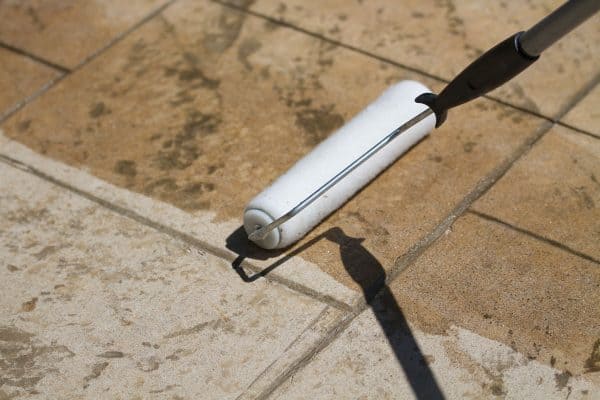Disclosure: We may get commissions for purchases made through links in this post.
For many people, seeing a snake outside the confines of the zoo can be an absolute nightmare. Due to hot and dry weather, snakes often find ways to look for places that can provide them good cover and food. Unfortunately, this also describes many people's yards and it may make you wonder if your pea gravel landscape will attract snakes. We've done the research to find out!
Pea gravel, otherwise known as pea shingles, are small stones with rounded, naturally weathered edges. These small rocks are commonly used in landscaped yards to accent flower beds and walkways. It's a great rock to use for yards and gardens because pea gravel does not attract snakes due to its small size.
Of course, pea gravel does not completely repel snakes from coming into your yard. There are a number of factors that are related to this, and we have compiled the information for you. Read on if you'd like to learn more about how pea gravel can lessen the attraction of snakes in your gardens.
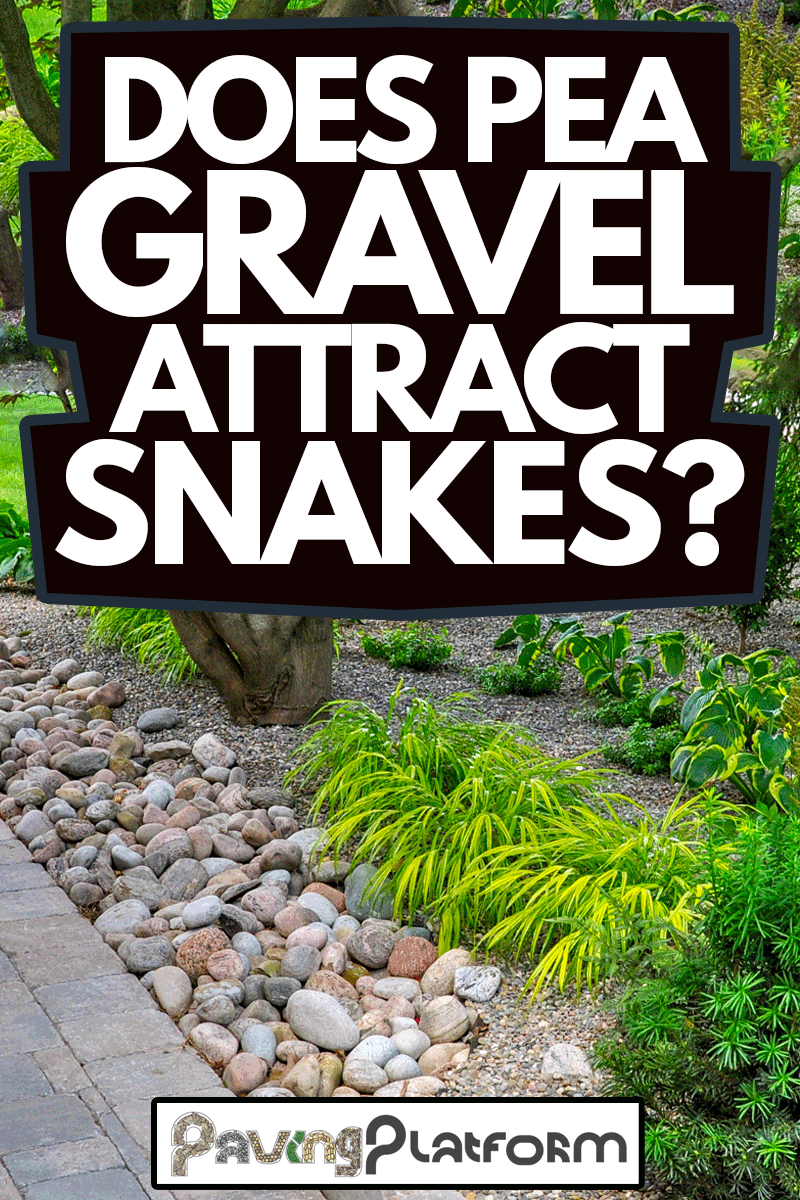
Pea Gravel and Snakes
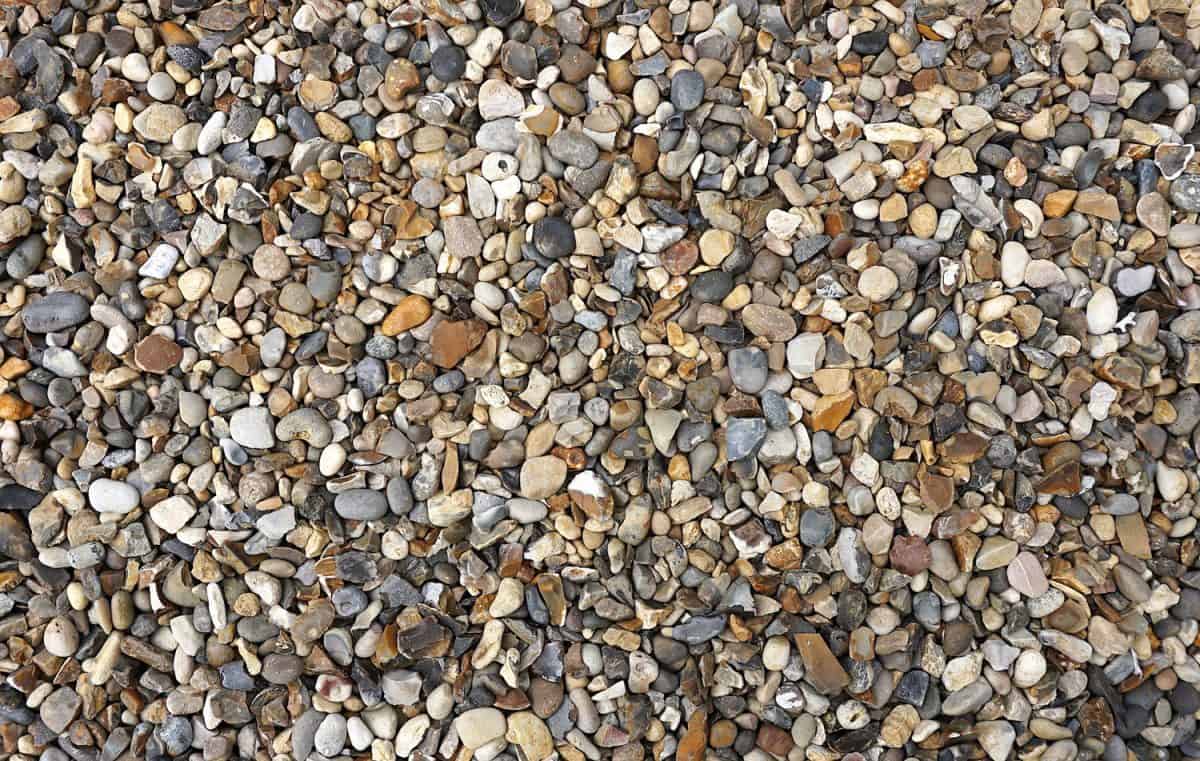
One of the things you might consider when doing landscaping for your yard is the material to use on your flower beds or mulch for your plants. A popular option for many landscapers is the use of pea gravel on many yard applications. This is because these small stones are tight-fitting and snakes are fond of slithering in an open, exposed space.
If you are considering re-landscaping your yard, choose pea gravel to be used as an accent to your flower beds and edges of your garden. This type of rock is perfect for this application without the risk of being a hiding place for snakes.
You may also use pea gravel as a mulching substitute for your flower bed cover. Mulch is organic and can become damp, hence making it attractive to snakes. The pea gravel will do the same job as mulch does, but it drains water faster and makes it really dry—something that does not appeal to snakes.
While pea gravel is great to use for landscaped yards and gardens, it is worth noting that it is not a snake deterrent. It simply is a good choice of rock application that is highly unlikely to attract snakes, but it will not ultimately prevent them.
Get this pea gravel on Amazon.
What Can You Do To Prevent Snakes in Yards?
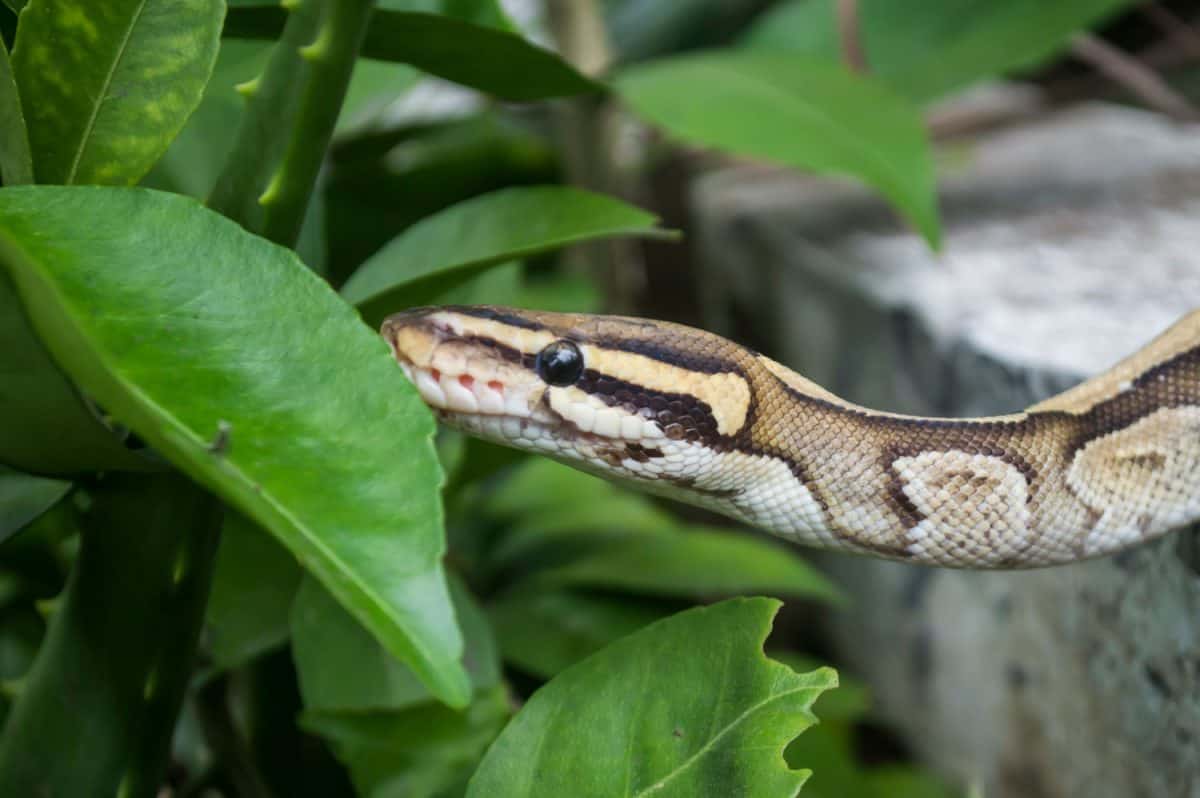
Snakes are generally attracted to two things that you may have in your yard—a place to hide and having food to eat. If you're looking for ways to reduce snakes from slithering into your gardens and homes without having to harm them, then the best way is to remove hiding places and food sources.
Removing hiding spaces for snakes to slither in can be done with a few preventative measures and maintenance. Snakes are known to look for places that are cool and damp, and they are also attracted to areas that have lots of cover.
Remove Or Trim Thick Grasses, Weeds, & Shrubs
Take out grass and plants that are tall and thick from your yard. Keep your lawn grass short and your weeds properly maintained to prevent snakes from seeking cover in these areas. Also, keep your bushes and shrubs trimmed—they can also be an accessible hiding place for snakes.
Avoid Placing Large Boulders & Woodpiles
Do not create spaces that have the possibility of being damp and cool. This means not using big rocks for landscaping (they may look beautiful, but they are also perfect places for snakes to curl under) and removing cave-like areas in your yard.
Take out woodpiles, rocks, and other piles like boxes to prevent them from hiding in these places. If you need to use rocks for soil cover, pea gravel is a perfect choice for this.
Deter Birds & Small Animals
Another reason why snakes may be attracted is the existence of a food source. Keep in mind that as long as there is food for them to eat, they will generally find reasons to stay in the area. Snakes are known to eat small animals like rodents, birds, as well as small amphibians.
One fairly popular reason why snakes are often attracted to yards is because of birdseed feeders. These things are great for attracting birds, and mice who happen to be quite enthusiastic about the falling seeds.
Because of this, rodents and other small nut and seed-eating animals may be attracted to your garden, which in turn attracts snakes because this is one of their prey. If you are in a highly populated snake area, avoid installing birdseed to prevent the small critters from hanging out at home. Don't give the snakes a buffet feast if you're trying to avoid them from coming into your yard.
Don't Leave Dog or Cat Food Out
Another reason why snakes may be attracted to your yard is because of old dog or cat food being left outside the house. While these are initially meant for our best furry friends, it's also an open invitation for rodents and mice to feast.
Keep Compost Bins Closed & Tidy
This is also true for compost bins near your home—any place that provides food for the small critters means that snakes will also come to share the dinner. In order to prevent this, feed your pets indoors and place your compost bins far away from your house.
If possible, it would also be best to get a compost bin with a very tight seal that prevents rodents from coming in. Remember, no food means no snakes slithering around.
How Can You Tell If You Have Snakes In Your Yard?
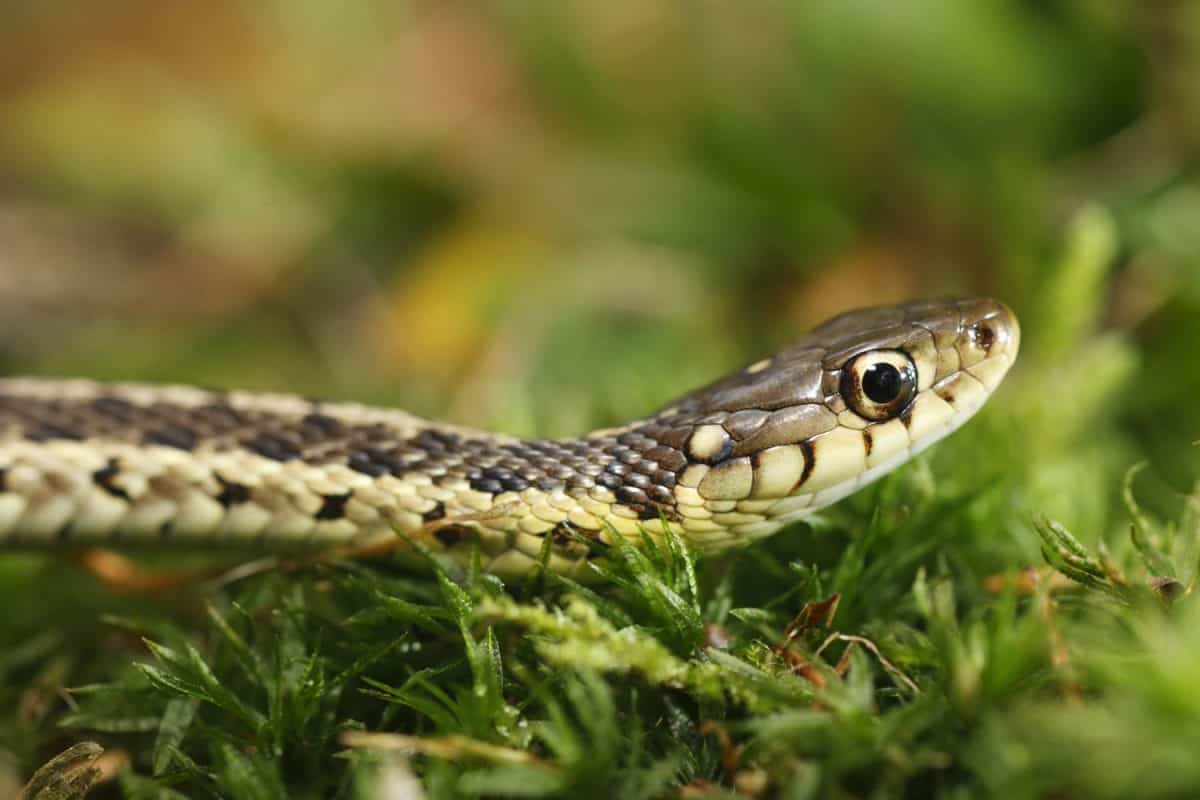
Snakes in general are not fond of being around humans. Not all of them are venomous too. They don't necessarily attack unless provoked and their main sources of food are little critters. If you live in an area that has a higher than normal snake population, it would be best to start snake-proofing your home. It's always a better idea to deter them from coming to a space that isn't meant for them.
Other than seeing an actual snake slithering in your yard, you may find some signs left behind by these unwanted guests. If you see any of these things around your yard, start finding ways to snake-proof your space. Remove all hiding places and food sources, and if in the occasion that you do see an actual snake in your home, call animal control to help you out.
Signs of Snakes in the Area
- Shed snakeskins
- Snake droppings
- Snake holes or burrows
- Strange smells in enclosed areas
- Tracks or traces of slithering across dirt, dust, or loose sand (like sandboxes)
What Kind of Rocks Deter Snakes?
There are few rocks that purposely deter snakes. However, according to the University of Illinois' study, one of the things that is shown to actively deter snakes from landscaped areas are sharp lava rocks. These volcanic rocks can be placed adjacent to structures that you'd like to prevent snakes from basking.
For best results, the lava rock should be about 2 to 3 feet wide and about 5 to 6 inches deep for snakes to be actively be deterred by it. Aside from being a safe, non-harming deterrent to snakes, lava rock is also great for preventing soil erosion and works as a low maintenance weed suppressor.
Lava rocks are generally available in most gardening supply stores, and some of them can be ordered online.
Check out this landscaping lava rock on Amazon.
Does Pea Gravel Attract Bugs?
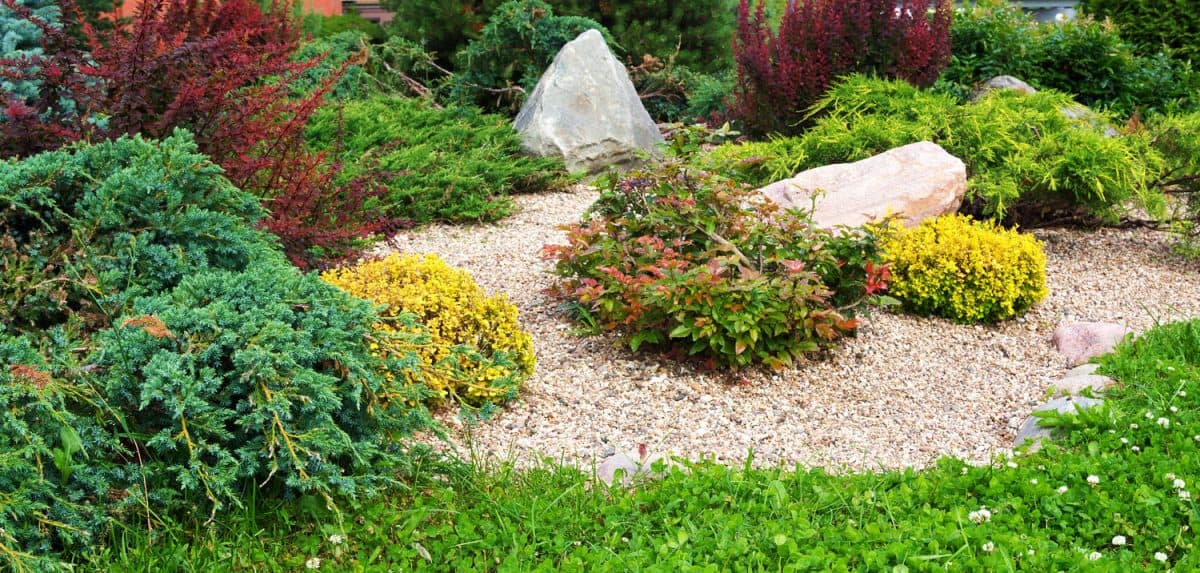
One of the benefits that pea gravel has over most rock applications for landscaping is its ability to prevent unwanted yard guests. With its numerous uses around the yard, pea gravel makes it easy to be a choice for landscapers.
As given in an example above, pea gravel can be used as a mulch substitute to cover your flower beds. This is one of the perfect applications of pea gravel because this material lasts longer, is durable and it doesn't decompose—something that bugs aren't very attracted to.
Unlike mulch, pea gravel drains water faster directly to the ground and prevents moisture buildup, making it less attractive to unwelcome bugs. While it is true that bugs may sometimes hide out in rocks, pea gravel prevents excessive food source to build up, therefore making it an improbable place for bugs to stay in.
Final Thoughts
Pea gravel is one of the best choices you can have for landscaping your yards. It's a good material that can be used for multiple applications in your gardens and flower beds without the high risk of attracting snakes. While it isn't a strong snake deterrent, making sure that your place is snake-proofed by using materials and removing the cover and food sources should make your yard a safe space to be in.
If you'd like to learn more about gravel in other applications to your home, we have an article that may be of interest to you.



![Vibrant Red Paver Stone Path, Can You Spray Paver Sealer? [How To Apply It]](https://pavingplatform.com/wp-content/uploads/2022/04/Vibrant-Red-Paver-Stone-Path-600x400.jpg)
![Properly laid out red pavers for a garden, Can You Tint Paver Sealer? [And How To]](https://pavingplatform.com/wp-content/uploads/2022/04/Properly-laid-out-red-pavers-for-a-garden-600x400.jpg)
